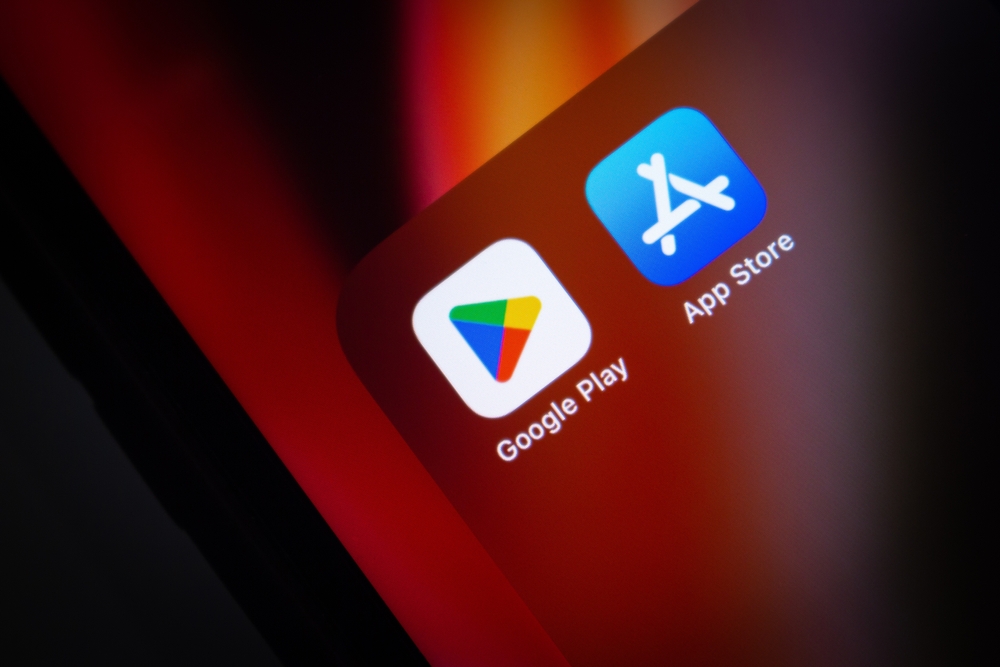
Mastering Mobile App Marketing: Unleash Proven Tips & Tricks for Successful Promotion

Mobile apps have become an integral part of our lives. From ordering food to booking a ride, there's an app for almost everything. However, with millions of mobile app s available in the app stores, the competition to grab users' attention is fierce. That's where mobile Android or iOS app marketing comes into play. A well-planned and executed app marketing strategy can be the difference between success and failure in the highly competitive app market. In this article, we will explore proven tips and tricks to help you master mobile Google Play or App Store app marketing and achieve successful promotion.
The Importance of Mobile App Marketing
Launching an app without a marketing strategy in place is like building a beautiful house in the middle of nowhere. Without proper promotion, your app is unlikely to gain traction and attract a significant user base. Effective mobile App Store or Google Play app marketing helps you reach your target audience, increase app downloads, and drive user engagement. It is a crucial step in ensuring the success of your app.
Research Your Target Audience
Knowing your target audience is the foundation of any successful marketing campaign, and mobile iOS or Android app marketing is no exception. Start by defining who your ideal users are. Conduct market research to understand their demographics, interests, and behaviors. This will help you tailor your marketing efforts to effectively reach and engage with your target audience. Use analytics tools to gather data about your app's current users and gain insights into their preferences and usage patterns.
Create a Compelling App Store Listing
Your app store listing is your first chance to make a lasting impression on potential users. A compelling and well-optimized listing can significantly increase your app's visibility and conversions. Pay attention to the following elements:
- Title: Choose a descriptive and catchy title that reflects the essence of your app.
- Description: Clearly explain what your app does and highlight its unique features and benefits. Use relevant keywords to improve search visibility.
- Icon: Design an eye-catching and recognizable icon that represents your app's brand identity.
- Screenshots and Videos: Showcase your app's user interface and key functionalities through high-quality screenshots and videos.
- Reviews and Ratings: Encourage satisfied users to leave positive reviews and ratings to boost your app's credibility.
Optimize for App Store Search
App store search is the primary method users rely on to discover new apps. Optimizing your app's visibility in search results is crucial for organic user acquisition. Consider the following optimization techniques:
- Keywords: Research and identify relevant keywords that your target audience is likely to search for. Incorporate these keywords naturally in your app's title, description, and metadata.
- Localization: Translate your app's metadata, description, and keywords into multiple languages to increase its discoverability in different markets.
- App Store Optimization Tools: Take advantage of app store optimization tools that provide keyword suggestions, competition analysis, and performance tracking.
Implement a Strong User Acquisition Strategy
Acquiring a significant user base is crucial for the success of your mobile app. While organic user acquisition is desirable, it may not always be sufficient. Implementing a well-rounded user acquisition strategy can help you reach a wider audience and drive app installs. Consider the following tactics:
- Paid Advertising: Run targeted advertising campaigns on social media platforms, search engines, and other relevant channels to increase app visibility and drive installs.
- Influencer Marketing: Collaborate with influencers in your industry to promote your app to their followers and leverage their credibility.
- App Store Advertising: Explore advertising options within the app stores, such as display ads and featured placements, to boost your app's visibility.
- Content Marketing: Create valuable and engaging content related to your app's niche to attract and educate potential users. Use content marketing channels like blogs, videos, and podcasts.
Monitor User Engagement and Iterate
App marketing doesn't end with acquiring users; it's equally important to retain and engage them. Monitor your app's user engagement metrics, such as active users, session length, and user retention rate. Gather feedback from your users through app store reviews, in-app surveys, and social media interactions. Constantly analyze this data to identify areas for improvement and iterate on your app's features, user experience, and marketing strategies. Engaging and delighting your users will result in higher app retention and positive word-of-mouth recommendations.
Frequently Asked Questions
Q1: How long does it take to see results from mobile app marketing?
A1: The timeline for seeing results from mobile app marketing can vary depending on various factors, including your app's niche, competition, marketing budget, and the effectiveness of your strategies. It's important to have a long-term approach and continuously monitor and optimize your marketing efforts to achieve sustained results.
Q2: Can I market my app on a limited budget?
A2: Yes, it is possible to market your app on a limited budget. While having a larger budget can provide access to more advertising channels and resources, there are cost-effective marketing tactics like content marketing and organic social media engagement that can still yield positive results. It's all about prioritizing your marketing efforts and optimizing for maximum impact.
Q3: Is app store optimization really necessary for app marketing?
A3: Yes, app store optimization is crucial for app marketing. Optimizing your app's visibility in app store search results can significantly increase organic user acquisition. Without proper optimization, your app may remain hidden in the app stores, making it difficult for potential users to discover and install it.
Q4: How can I retain users after acquiring them?
A4: User retention is key to the long-term success of your app. To retain users, focus on providing a seamless and engaging user experience. Regularly release updates and new features based on user feedback. Offer incentives, rewards, or special offers to encourage users to continue using your app. Personalize their experience through targeted notifications and relevant content.
Q5: Is it essential to track user engagement metrics?
A5: Yes, tracking user engagement metrics is essential for understanding how users interact with your app. It helps you identify areas of improvement, optimize your app's features, and tailor your marketing strategies to better engage your target audience. Monitoring user engagement allows you to iterate and enhance your app's overall user experience, leading to increased user satisfaction and retention.
In conclusion, mastering mobile app marketing requires a combination of strategic planning, targeting the right audience, and implementing effective promotional tactics. By researching your target audience, optimizing your app store listing, leveraging app store search optimization techniques, implementing a strong user acquisition strategy, and monitoring user engagement, you can maximize your app's chances of success. Remember to continuously analyze data, iterate on your strategies, and stay up-to-date with the latest trends to stay ahead of the competition and achieve long-term success.
Other useful resources
- https://en.wikipedia.org/wiki/Mobile_app_development
- https://en.wikipedia.org/wiki/IOS
- https://www.appguru24.com/apps/